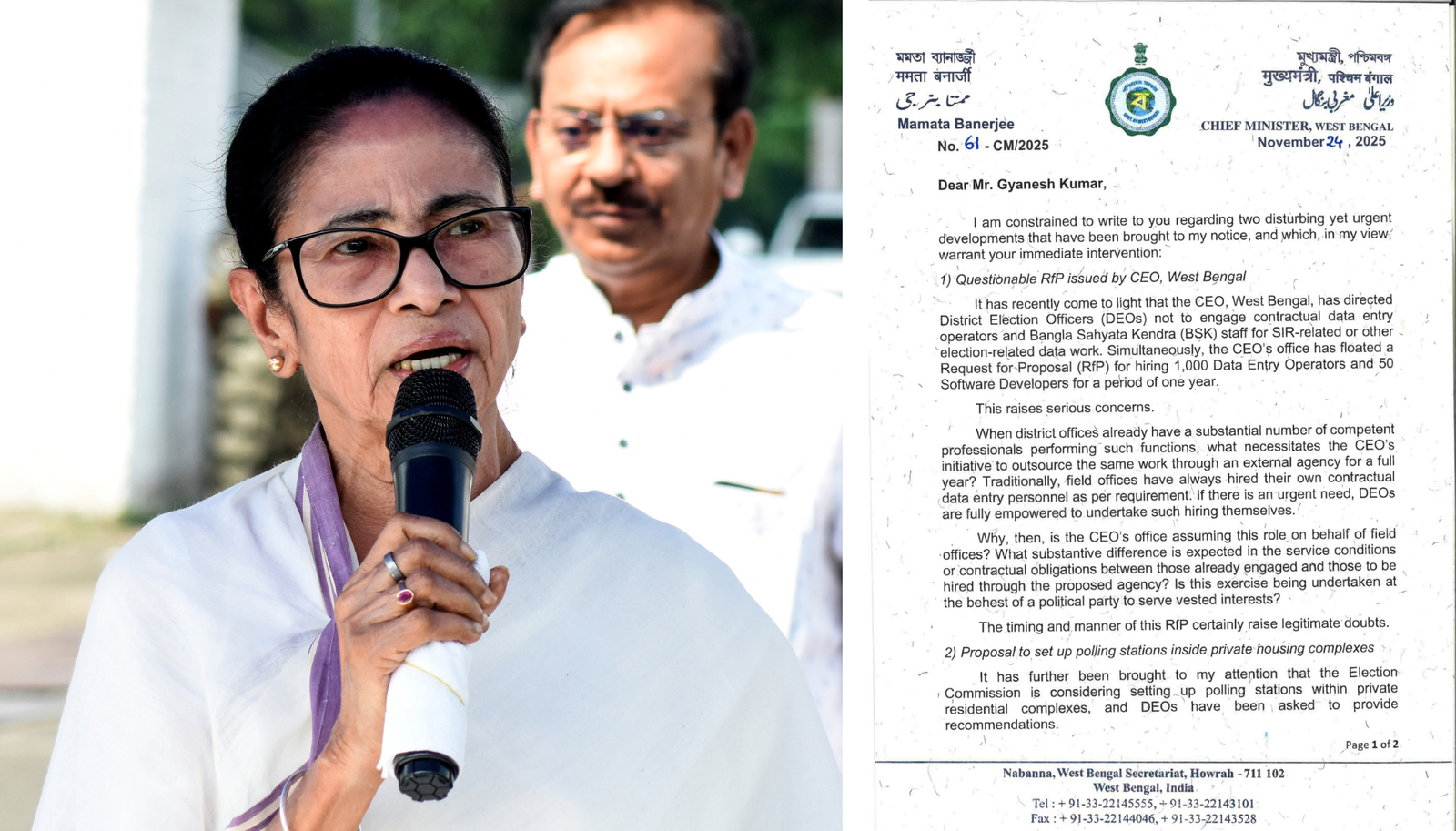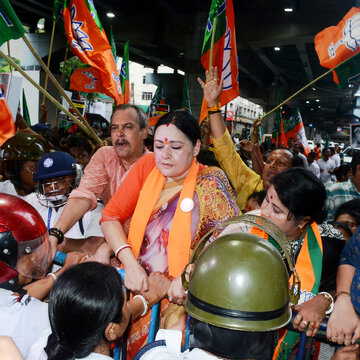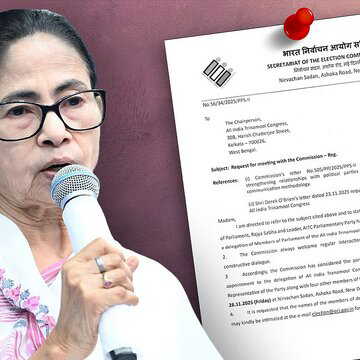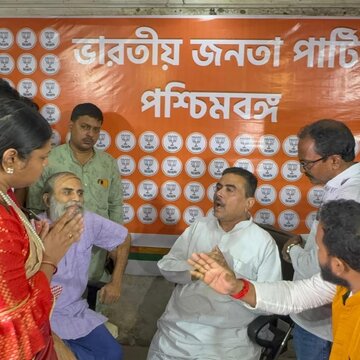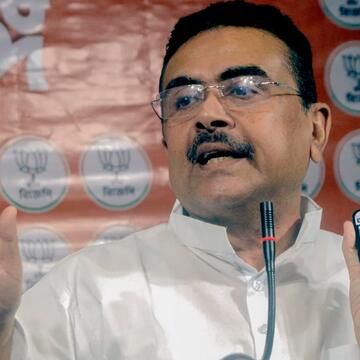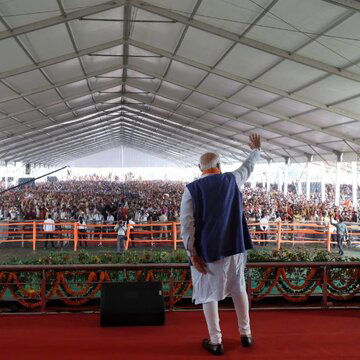The Chief Minister of West Bengal, Mamata Banerjee, has sent an official letter to the Chief Electoral Officer Manoj Kumar Agarwal, flagging serious concern surrounding the recent developments, on 24 November. In the letter, CM Bamerjee has pointed out "two deeply suspicious developments that reek of POLITICAL MANIPULATION and INSTITUTIONAL COMPROMISE," according to an X post shared by the Post by the All India Trinamool Congress.
RfP issued for hiring data entry operators
The CM shed light on two major points in the letter. Where she talked about the recently issued direction of the CEO, where the District Elections Officers (DEO) have been instructed "not to engage contractual data entry operators and Bangla Sahyata Kendra (BSK) staff for SIR-related or other election-related data work".
Earlier, a Request for Proposal (RfP) was issued to hire 1,000 Data Entry Operators and 50 Software Developers for a tenure of one year.
"When district offices already have a substantial number of competent professionals performing such functions, what necessitates the CEO's initiative to outsource the same work through an external agency for a full year?" questioned Bengal CM.
She also went on asking the intent of the Election Commission of India behind this sudden decision, while the field officers had been responsible for hiring their own data entry operators based on their requirements. She added, " Is this exercise being undertaken at the behest of a political party to serve vested interests?"
Polling stations inside private housing complexes
The AITC leader also pointed out that the ECI is considering private residential complexes for setting up polling stations. For which the DEOs have been asked to send their recommendations. Mamata Banerjee criticised this proposal and called it "deeply problematic."
She has written in the letter, "Polling stations have always been and must remain located in government or semi-government institutions, preferably within a 2 km radius, to ensure accessibility and neutrality. Private buildings are typically avoided for clear reasons: they compromise fairness, violate established norms, and create discriminatory distinctions between privileged residents and the general public- the haves and have-nots."
She also questioned whether these actions are being taken under pressure from a political party to advance their partisan interests or not. She has urged the CEO to look into the issues with utmost seriousness. impartiality, and transparency so the dignity, neutrality, and credibility of the Commission remain above reproach.


